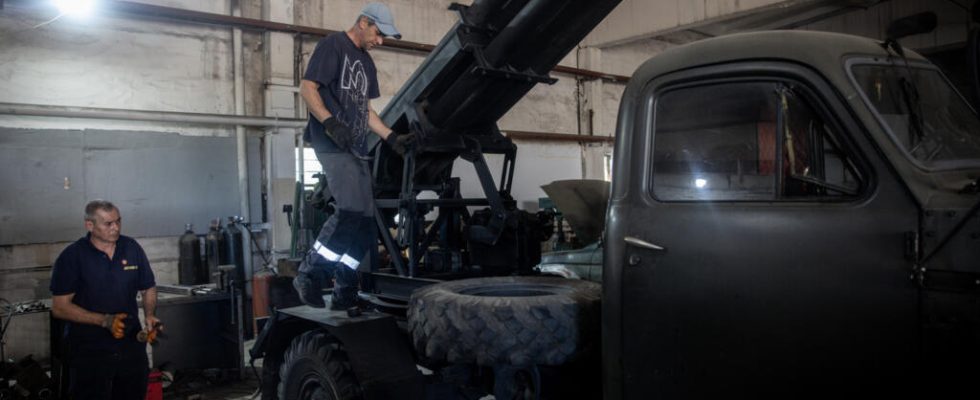During a forum organized in kyiv on Thursday September 28 with international arms professionals, Volodymyr Zelensky pleaded for the creation of a “ major military center “. An association with Western arms manufacturers in order to increase arms deliveries to support the counter-offensive launched by its army at the beginning of June against the Russians. Because near the Zaporizhia front, we know well that the reconquest operation can still last a long time.
2 mins
With our special correspondents in Zaporizhia, Anastasia Becchio and Boris Vicith
Under a tree, a soldier deploys a 60 mm mortar. This is the smallest model owned by this sergeant’s unit, who has been in the army since 2014. A maneuverable weapon, which allows the gunners to be very mobile to escape Russian drones.
“ After only two shots, we immediately hear the approaching dronesthe soldier complains. The sky belongs to them, in any case, here “. And not only. Since on land, despite the launch of the counter-offensive, the situation remains delicate and the Russian troops are tenacious. “ In addition to that, they built fortificationscontinues the mortar sergeant. Their trenches are very deep, they stand there and we cannot see them. It’s very difficult to dislodge them. We have to use large caliber mortars, but that means more ammunition, we need a lot more. »
“Our artillery fire is useless, it’s like a ricochet”
Artillery is not always enough to repel the Russians and their sophisticated defense system in the southern plains, maintains Konstantin Suvorov. “ Only fighter jets can hit them hard, delivers the one nicknamed “The Cat”, deputy to the unit commander. They buried themselves. They transformed shipping containers into shelters, they poured concrete into them. As a result, our artillery fire is useless, it’s like a ricochet and it doesn’t cause them much damage. A plane would be more useful. »
Suddenly, a Ukrainian fighter flies over the village, where the soldiers are resting between two missions to the front. “ It’s nice, it will make our job easier “, says Konstantin, “ but we need a lot more “.
